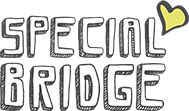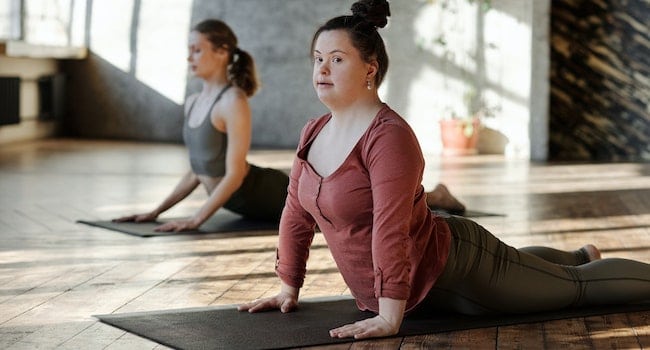You may have noticed someone at work or in class with some unique features. These individuals usually have slanted eyes, flattened faces, language difficulties, or protruded tongues. Despite these characteristics, they can live normal lives.
There are even successful individuals with Down syndrome, like Collette Divitto, founder of Collettey’s Cookies, who took the culinary world by storm. That means, you shouldn’t let statistics define these individuals, so continue reading to learn more about living with Down syndrome.
What Is Down Syndrome?
Down syndrome is a genetic disease caused by abnormal cell division. This leads to aberrant physical characteristics associated with the condition.
Individuals with Down syndrome have varying degrees of intellectual impairment and developmental disabilities. It is the most prevalent genetic chromosomal abnormality in children and the leading cause of cognitive difficulties. It also results in other medical problems, such as cardiac and gastrointestinal issues.
What Causes Down Syndrome?
A normal human cell has 23 pairs of chromosomes. Each pair contains one chromosome from the father and one from the mother.
Down syndrome develops when chromosome 21 undergoes aberrant cell division. These abnormal cell divisions lead to an additional copy of chromosome 21, which is responsible for distinctive characteristics of the disease. Down syndrome can also be caused by one of three genetic variants:
Trisomy 21
Down syndrome is caused by trisomy 21 in 95 percent of the cases. The individual has three copies of chromosome 21 in all the cells, rather than the normal two copies. This is caused by irregular cell division during egg or sperm cell development.
Mosaic
An individual with this type of Down syndrome has just a few cells with an extra copy of chromosome 21. This patchwork of normal and abnormal cells is produced by postfertilization and improper cell division.
Translocation
Down syndrome may also develop when a segment of chromosome 21 is translocated (attached) to another chromosome before or during conception. These youngsters have two chromosome 21, and an extra genetic material linked to another chromosome.
Down Syndrome Symptoms
Each person with Down syndrome is unique. Some individuals are healthy, while others suffer from severe health issues. Down syndrome children and adults have unique facial characteristics.
Not all individuals with Down syndrome have the same features. The following are some of the more prevalent ones:
- Flattened face
- Small head
- Wide neck
- Protruding Tongue
- Eyelids that slope upward (palpebral fissures)
- Unusually shaped or tiny ears
- Muscle tone deficiency
- Broad and short hands with a single wrinkle on the palm
- Short and tiny fingers
- Brushfield’s spots in the eyes
- Short stature
Infants with Down syndrome are generally average in stature. However, they often develop slowly and stay shorter than other children their age.
Tips for Adults With Down Syndrome
Adults with Down syndrome, like any other group of individuals, have various requirements, skills, and aspirations. Some will develop the ability to drive, have relationships, and live independently. Others may need more daily care but can maintain part-time work and engage in important social activities.
They can have meaningful lives and experience a sense of belonging in their communities with the proper assistance. Therefore, it’s beneficial to understand what choices are available and what you’ll want to monitor.
Transitioning to Adulthood
As teens with Down syndrome graduate from high school, they must transition to college or get a job. Transition planning is a component of the Individualized Education Program (IEP) that students with Down syndrome receive in public schools. The objective is to envision the future and consider the skills and services adolescents will need as they mature into adults.
When you collaborate closely with instructors, physicians, and therapists to develop a sound plan, you can alleviate some of the tension associated with venturing out into the world. As the changes approach, adolescents with Down syndrome may seem moody or perform poorly in school. Bear in mind that school offers more than a place to study; it also provides a normal social framework with built-in supports such as instructors and an IEP.
Housing Arrangements
Adults with Down syndrome have a variety of housing and living options. It’s all about matching requirements and aspirations. Certain individuals will survive at:
- Home with family
- Student housing for college
- Their own home or apartment with support services
- A group home with other people with impairments
It depends on how severe their condition is and what they want. If they are not doing well in one of these living options, it’s best to discuss additional strategies with a therapist.
Employment and Post-Secondary Education
Some people with Down syndrome continue their education by attending college or vocational schools, while others find work. There are three kinds of employment for individuals with Down syndrome:
Competitive
These are normal positions that anybody can apply for, but it may not be a good fit for someone with extreme symptoms of Down syndrome. This is mainly because there’s no special assistance in place.
Supported
A job coach helps them get up to speed while they work along with individuals who don’t have impairments. This is the most frequent kind of employment for people with Down syndrome.
Sheltered
In this instance, they work with other individuals who have impairments. These occupations tend to involve manual work, like putting things together.
Relationships and Social Well-Being
Employment may serve as a way to be part of the community. However, it’s also essential for individuals with Down syndrome to participate in sports, hobbies, and other interests.
They can also date, have meaningful relationships, and get married. That means it’s essential to speak to adolescents with down syndrome about sexuality, birth control, and STD.
Having a Family
Some may also desire to establish families, but males with Down syndrome generally can’t father children. Women can have kids, but they’re more likely to have miscarriages and premature labor. Parenting is challenging, so they will need additional assistance.
Health Issues
People with Down syndrome are likely to develop age-related health issues sooner than others. This involves dementia, memory loss, changes in personality, or Alzheimer’s disease.
It may be hard to determine whether these problems indicate Alzheimer’s or something else, such as stress, sadness, or a medical condition. You can assist by recording when and how frequently these changes happen, then check up with a doctor. Other health problems people with Down syndrome are likely to encounter include:
- Obesity
- Diabetes
- Cataracts
- Early menopause
- High cholesterol
- Thyroid ailment
- Leukemia
Fortunately, there are ways to manage these health issues. As an individual with Down syndrome gets older, make sure they receive regular check-ups and communicate their concerns with the doctor.
Down Syndrome Life Expectancy
Life expectancy has increased significantly for individuals with Down syndrome. Today, someone with this condition can live more than 60 years, depending on the degree of health issues.
The oldest surviving woman with Down syndrome is 74 year old Dollie Grissom of Oklahoma. The oldest surviving man with Down syndrome is Bert Holbrook, who died in 2012 at age 83.
Learn More About Living With Down Syndrome
If you know someone with down syndrome, you are probably wondering what you can do to help. There’s no treatment that cures the disease, but there are ways to manage it. With the strategies above, along with plenty of love and support, anyone can live a normal and successful life with Down syndrome.
If you are interested in learning more, we are here to help. Contact us today to learn more about living with down syndrome or about meeting like-minded people at Special Bridge!




3 comments:
Christine Zabel
August 17, 2022 at 1:20 pm
Hello, I am the mom of a young man with Down syndrome. He is 26. Now that the world covid situation is a little better understood, we are venturing out more. He is working with a job coach to find employment. Taking culinary classes, he desires to be a chef. He has had 2 girlfriends while in school but unfortunately both families decided on group homes far away. My son is feeling lonely and isolated. Can specialbridge really help? With so many predators out there, I worry for his safety. Thank you for your time and assistance.
Bella Gentry
February 16, 2023 at 10:32 pm
Also a mom checking out what is available online for my daughter. She is 20 and still in high school. Not sure how to help her have a social life after that. Our other children are grown and gone 🙁 and she misses them dreadfully.
Byner
February 3, 2025 at 5:26 pm
My sister is 56 years old. And I need help finding her a psychiatrist and at nourishes. I’m in love bill. And I cannot find a every time I get referral from the Doctor for psychiatrists For Her. They see nobody but children when I get it. We fell upon a knurges, they see no one. But children are either. They’d not take new patients now. How can I get some help for my sister? Who is fifty six with down syndrome